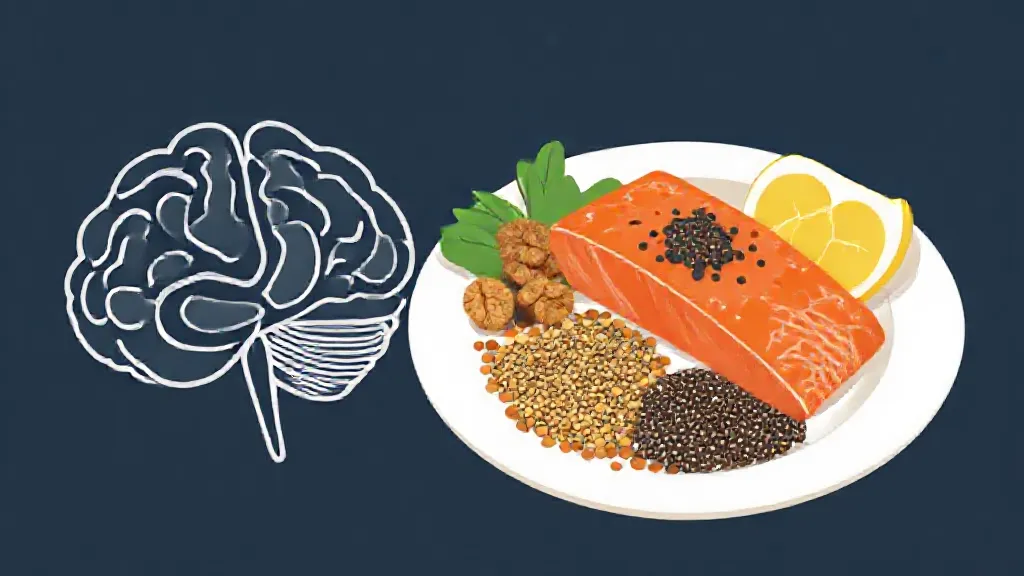Omega-3 fatty acids have garnered significant attention in recent years for their multifaceted benefits, particularly in relation to brain health. These essential fats, which the body cannot produce on its own, are primarily found in fish, flaxseeds, chia seeds, and walnuts. The most studied forms of omega-3 are eicosapentaenoic acid (EPA) and docosahexaenoic acid (DHA).
Research indicates that these fatty acids play a crucial role in maintaining cognitive function, supporting mental health, and potentially reducing the risk of neurodegenerative diseases.
The Science Behind Omega-3s and Brain Structure
The human brain is composed of approximately 60% fat, and a significant portion of that fat is made up of omega-3 fatty acids, particularly DHA. DHA is vital for the growth and functional maintenance of neurons, the brain's nerve cells.
It contributes to the fluidity of cell membranes, which is essential for effective communication between neurons. Studies have shown that higher levels of DHA in the brain are linked to improved cognitive performance, including memory and learning capabilities.
Impact on Cognitive Function and Memory
Numerous studies have demonstrated a positive correlation between omega-3 intake and cognitive function.
For instance, research published in the American Journal of Clinical Nutrition found that individuals with higher omega-3 levels performed better on cognitive tests than those with lower levels. Additionally, omega-3 supplementation has been associated with improvements in memory and attention in both children and adults. This suggests that incorporating omega-3-rich foods into one’s diet could be a simple yet effective strategy for enhancing cognitive abilities.
Omega-3s and Mental Health
Beyond cognitive function, omega-3 fatty acids have also been linked to mental health benefits. Numerous studies suggest that omega-3 supplementation can alleviate symptoms of depression and anxiety. A meta-analysis published in JAMA Network Open found that individuals who consumed omega-3 supplements experienced a significant reduction in depressive symptoms compared to those who did not.
The anti-inflammatory properties of omega-3s may play a role in this effect, as inflammation is increasingly recognized as a contributing factor to mood disorders.
Protection Against Neurodegenerative Diseases
Research suggests that omega-3 fatty acids may provide protective effects against neurodegenerative diseases such as Alzheimer's and Parkinson's. A study published in the journal Neurology found that higher blood levels of omega-3s were associated with a lower risk of developing Alzheimer’s disease.
Furthermore, omega-3s may help reduce amyloid plaque buildup in the brain, a hallmark of Alzheimer’s. This protective effect underscores the importance of maintaining adequate omega-3 levels throughout life to support long-term brain health.
Sources of Omega-3 Fatty Acids
To reap the benefits of omega-3s, it is essential to include them in your diet.
Fatty fish such as salmon, mackerel, and sardines are among the richest sources of EPA and DHA. For those who prefer plant-based options, flaxseeds, chia seeds, and walnuts provide alpha-linolenic acid (ALA), another form of omega-3 that the body can partially convert to EPA and DHA. Additionally, omega-3 supplements, such as fish oil or algal oil, can be an effective way to ensure adequate intake, particularly for individuals who do not consume fish regularly.
Recommended Daily Intake of Omega-3s
Health organizations recommend varying amounts of omega-3 fatty acids, but a common guideline suggests at least 250-500 mg of combined EPA and DHA per day for adults. For individuals with specific health conditions, such as heart disease or depression, higher doses may be beneficial. It is important to consult with a healthcare professional before starting any supplementation to determine the appropriate dosage based on individual health needs.
Conclusion: Prioritizing Omega-3 for Optimal Brain Health
In summary, omega-3 fatty acids are essential for maintaining optimal brain health. Their roles in cognitive function, mental health, and protection against neurodegenerative diseases highlight the importance of incorporating these nutrients into our daily diets. By prioritizing omega-3-rich foods and considering supplementation when necessary, individuals can take proactive steps toward enhancing their brain health and overall well-being.
Image Prompt
Create an image of a balanced plate featuring omega-3 rich foods such as salmon, walnuts, chia seeds, and flaxseeds, with a backdrop of a brain illustration to symbolize the connection between diet and brain health.
